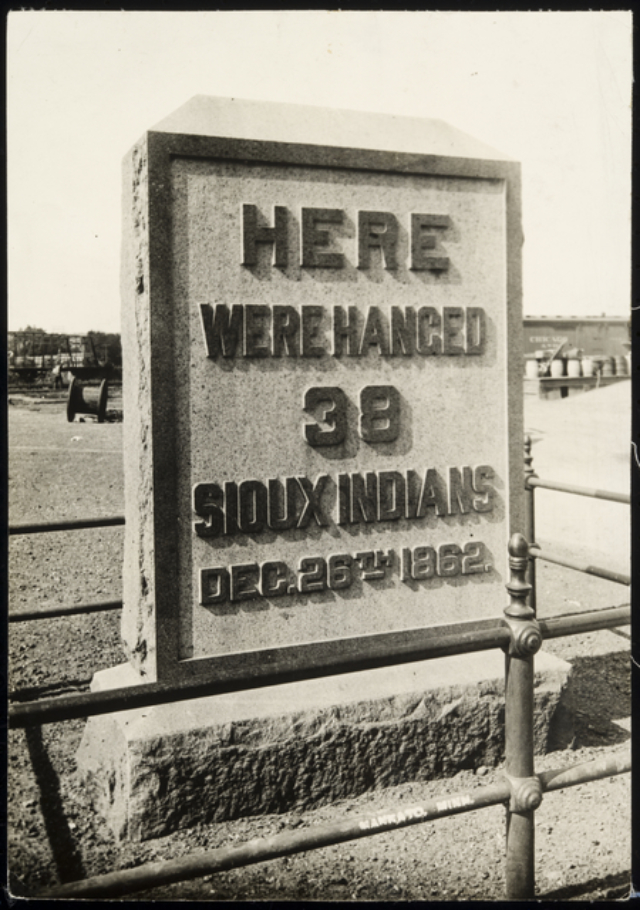Relic from a shameful chapter of American history returned to the Dakota People by an anonymous donor

In an age of decadence, narcissism and shit behavior from well-to-dos that's excused with mutterings of affluenza, it's always nice to be surprised by someone anonymously throwing a large sum of money at a worthy cause.
Before talking about the inherent good that some affluent individual pulled out of thin air earlier this week, we need to talk about The U.S.-Dakota War of 1862, also known as the Sioux Uprising. For the uninitiated, it was a brief, ugly piece of American history. The short version of events: The Dakota people were pissed: the United States government had been screwing them out of land, coming up late with agreed-upon shipments of essential supplies and submitting them to unfair trade practices, contrary to what had been signed off on in treaties between the Dakota/Sioux nations and the United States of America. Tempers flared, as they do over issues of trust and sustenance. A group of Dakota killed a party of Minnesota settlers. War between the U.S. Government and the tribes broke out.
38 Dakota men were captured and convicted of war crimes. They were hung in response to the killing of the settlers: it was the largest single day mass execution in American history. By April of 1863, having lost to superior government forces, the remaining Dakota people were forced out of Minnesota as the United States Congress abolished the tribe's rights to their reservations. Hundreds of people on both sides of the war died as a consequence of the conflict.
Fast forward to the present day: a peace pipe with a history that traces back to the U.S.-Dakota War of 1862 was included in an auction being held in Boston. Skinner, the company hosting the auction, listed the peace pipe as with an estimated value of between $15,000 to $20,000. The pipe, according to a note on its auction information page, was presented to a U.S. Army officer by a Sioux Chief named White Dog while he was being held prisoner. White Dog was killed in 1862 as one of the 38 people chosen for execution in Mankato. The peace pipe ended up in the hands of a private collector in Boston. As it's an important part of their history, when the Lower Sioux Indian Community heard that the pipe was coming to auction, they tried, unsuccessfully, to put a stop to the sale of the pipe.
This past weekend, the auction went ahead, as planned. The peace pipe offered by White Dog to his captor sold for $39,975: close to twice of what it was estimated to be worth.
From MPR:
On Monday afternoon, however, Prairie Island Tribal Council President Shelley Buck said that shortly after the auction, the tribe learned that the buyer had bought the pipe "for the sole purpose of returning it to the Dakota Oyate (people)."
The donor of the pipe wishes to remain anonymous, Buck said in a statement, adding, "We are humbled by and grateful for this honorable act. Pidamayaye to the donor for your respect and generosity."
More gracious, heartening stories like this, please.